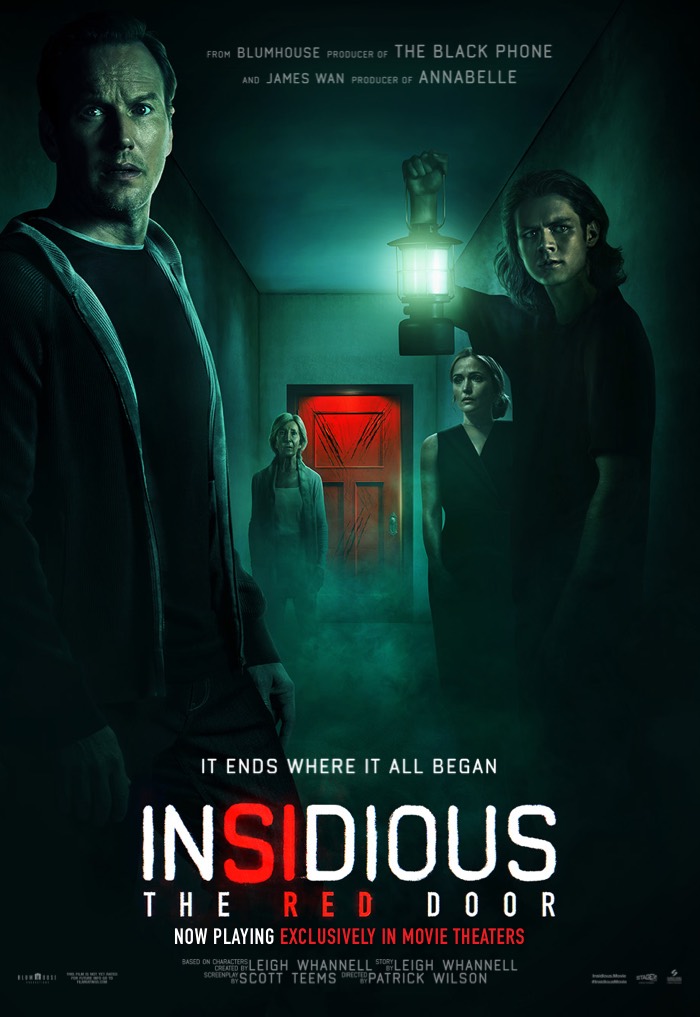
Upon first glance, the weekend box office looks insignificant. The only movie that opened wide was a smaller studio horror movie, Insidious 4.
But I would argue that this weekend’s box office is one of the most important box offices of the year. The box office is its own form of AI, an accumulation of the collective consciousness of every potential moviegoer in the world. And, therefore, when it delivers a number, it is making a point. It is trying to tell us something.
So what is it trying to tell us by anointing Insidious as the biggest movie of the weekend, a small horror franchise that isn’t even associated with an identifiable image?
To answer that question, we must first acknowledge what’s been happening to Disney movies as of late. Disney took over the industry for a decade. It was a super-hitmaker the likes of which had never been seen before in Hollywood. It had Pixar, Marvel, Star Wars, its own animation library, and its live-action animation remakes. The studio pumped out billion-dollar hits like it was Michael Jackson in the 80s.
But everything has changed. Here are some of their recent releases…
Strange World
Elemental
Buzz Lightyear
Ant-Man
The Little Mermaid
Eternals
Why is this relevant? Because Disney drove the business strategy that all the other studios were forced to adapt to in the 2010s. Which was to create super-movies. In the 90s, they would’ve called these “tentpoles.” But Disney took that concept to a new level. Tentpoles didn’t bring in enough money. They wanted SUPER-TENTPOLES – these gigantic movies that created their own orbit they were so big.
The reason was because a super-tentpole could net them half a billion dollars. If you could net half a billion dollars with one movie, why would you concern yourself with making Insidious’s? Insidious may have doubled its budget with its opening weekend take of 30 million bucks. But in “Disney” parlance, that’s a pittance. A 50 million dollar profit when it’s all said and done is weak-sauce when compared to 500 million.
And for a while, that operating procedure worked.
But here’s the problem.
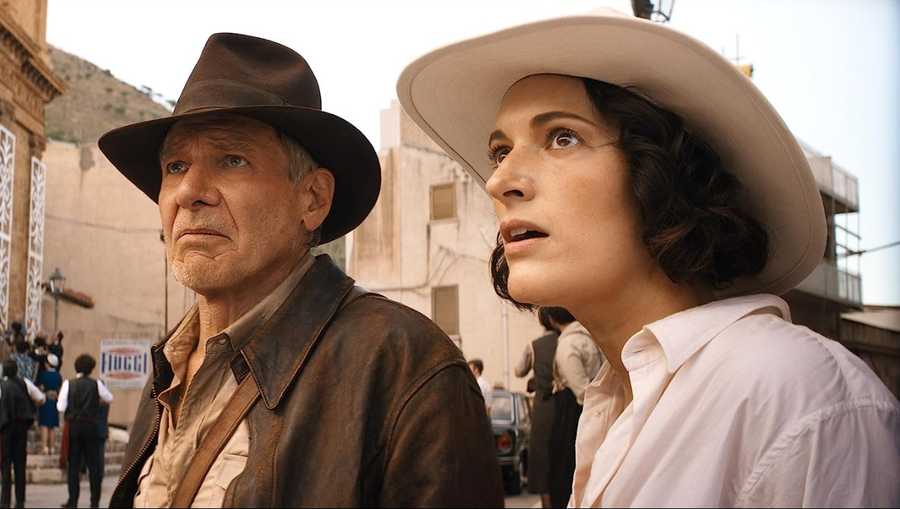
When you make 300 million dollar movies that don’t do well, such as Indiana Jones, you don’t lose 15 million bucks. You lose 150 million. Or 250. Or 350. And while, before, Disney was so successful that they could weather one of these occasional duds, they’re starting to fail a lot more now.
I don’t care who you are. If you’re losing 200+ million a movie? You’re not going to be around for long. And Disney is losing a lot more than they’re winning these days.
Bringing this back to Insidious, studios may have to reevaluate their business strategy. Maybe super-movies aren’t the way to go anymore. They’re too darn risky. And it’s not just because of the pandemic. It’s because they got lazy. They got real real lazy over the last decade and they thought anything with a superhero in it would make a billion bucks. They thought any live-action remake of one of their cartoons would make a billion bucks. They thought any sort of nostalgia would make a billion bucks.
THEY STOPPED INNOVATING.
I say it all the time here. Audiences will NOT EAT EVERYTHING UP. You do have to take some chances. Or, if you’re going to stick with the tried-and-true superhero genre, you have to innovate in *some* capacity. And they’re just not doing that right now.
To be honest, I don’t know if they know how to innovate anymore. When was the last time they tried?
Next weekend’s going to be interesting because Mission Impossible comes out and I don’t know if people are going to see it. It is the definition of something we get ALL THE TIME. And if Fast and Furious is any indication of what to expect, Tom Cruise could be in trouble. By the way, what’s up with Tom? The guy is more concerned with hyping up his competition than his own films!
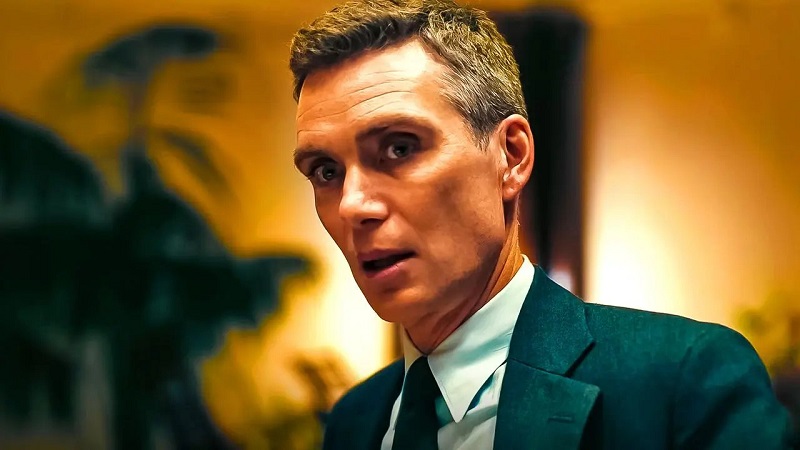
Following Mission Impossible is going to be one of the weirdest movie weekends I can remember, with Barbie and Oppenheimer opening. To be fair, Oppenheimer is doing exactly what I just asked for, which is to innovate. There hasn’t been a movie like this in decades. Which on the one hand is great. I just don’t know how you pull in a lot of money from a movie that’s not going to have a single female in the audience. Does anyone know a woman who’s going to see this movie?
While unimaginable six months ago, Barbie looks like it’s going to be the film of the summer. It looks like it’s going to be huge. And I *do* think Barbie is trying something different. It looks like it’s hiding very adult subject matter inside a fun summer movie. Which means it’s going to bring in young and old audiences. I have to commend Greta and Margot. I didn’t think they could do it. Yet, here they are. No one’s talking about any movie this summer as much as they’re talking about Barbie.
By the way, for those of you who don’t know, the Barbie movie has been in development for a decade. Ten years ago, Diablo Cody was hired to write the film with Amy Schumer starring. I think we all did a little prayer thanking our lord and savior that that didn’t happen.
But what’s interesting is that Diablo came out this week explaining why their movie didn’t get greenlit and it’s because the studio wanted to deconstruct Barbie and basically crap all over the brand – say all this stuff about how femininity was bad and girls wanting to look like Barbie was bad. And Diablo just couldn’t make it work because that’s not Barbie. How do you make a movie about Barbie where the theme is, “Barbie is bad.” It was impossible to crack.
Whereas it seems, now, they’re making this movie to celebrate Barbie. But it’s also subtly acknowledging that times have changed.
Maybe the biggest surprise this weekend was the conservative film Sound of Freedom, which added another 18 million bucks to its take, allowing it to top 40 mil. This is another genre that isn’t going to get you superhero returns but it’s also not going to strap you with superhero losses if it bombs.
The problem with conservative films in the past has been that they’re too faith-based. Which basically keeps them niche. Cause liberal audiences don’t care about religion. So what Taylor Sheridan introduced was this idea that you could play to other more profitable aspects of conservative beliefs (justice, survival, connection to nature, family), the kind of stuff that works better inside the feature fictional format.
If more conservative writers realized that, there’s a huge market to be tapped there, as Sound of Freedom has proven.
This could be the future of the box office if these giant movies keep failing. Cause it’s not just Disney. It’s WB as well. Superheroes are no longer teflon. Spider-Man, maybe. But that’s because he’s the best superhero. So, of course his movies are going to do well. But everyone else? They’re in trouble.
Which means getting smarter and exploiting these neglected crevices in the market. Or just write horror films. Cause horror films always do well.
Speaking of horror, I bucked up and got MGM Plus so I could watch that show, “From.” A few of you told me it was awesome. I finally listened. I watched the pilot and it was indeed, very good.

For those who don’t know, the show is about this town in the middle of nowhere that people are stuck in. If you drive out on the road, you always loop back to the town automatically. What’s interesting is that people keep showing up. Every couple of weeks, a new person or family will drive into the town, lost, wondering where they are. When they’re told they’re forever stuck here, they of course try to leave, only to keep looping back into town. It’s a fun little premise. And it also has these monsters that come out at night, which forces everyone to be home by nightfall. It’s one of those rare gems that treats their setup with such respect that it doesn’t come off as cheesy.
I don’t know if you remember that disaster on NBC called La Brea about the people who fall into a wormhole and end up in Los Angeles a million years ago. If you watch “La Brea” and then watch “From,” you’ll notice the sophistication in the writing is night and day. One understands how to do their genre premise right. The other makes almost every mistake in the book.
Anyway, I loved the pilot episode. I’m going to keep watching. If you want to check it out, the first 7 days of MGM Plus are free.
But, despite my overall love for the pilot, I did want to highlight one major mistake in “From” only because I see this in screenplays ALL THE TIME and it drives me insane. I call it “dialogue tunnel vision.” Dialogue tunnel vision is when you get so determined to write a certain line of dialogue, that you’re unable to realize how inappropriate the line is within the context of the moment.
So, in the pilot, this lost family in an RV rolls into the town. They’re confused. They coulda swore they were supposed to run into a highway by now. And it just so happens that they arrive during a town funeral. Two people were killed last night by the monsters.
The RV parks next to the service, which is ending. As the townspeople all walk away from the service, the teenaged daughter in the RV opines to her family, sarcastically, “They seem like a cheery group.”
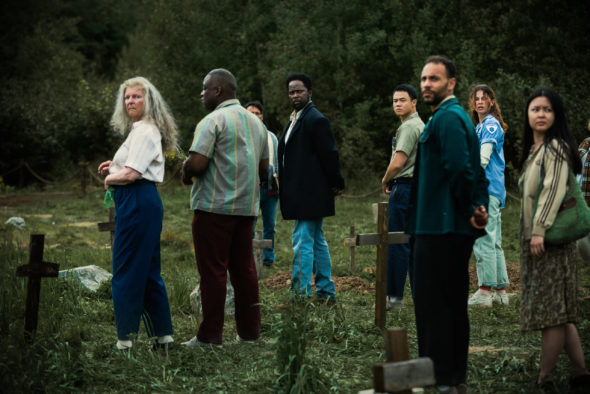
Now, I want you to think about this line for a second. Cause this is the epitome of dialogue tunnel-vision. I know exactly what the writer was thinking. They were thinking, “Let’s establish that something weird is going on in this town. The people aren’t right. They’re not acting normal. Let’s have our outsiders vocalize that.”
But the writer had so much tunnel-vision in establishing that reality with this observational line of dialogue, that he completely overlooked the fact that ALL OF THESE PEOPLE WERE JUST LEAVING A FUNERAL!!!! Who has ever looked cheery after a funeral? What the daughter is saying, objectively, makes zero sense. Why would you expect anyone to be looking cheery right now? Hence, dialogue tunnel-vision.
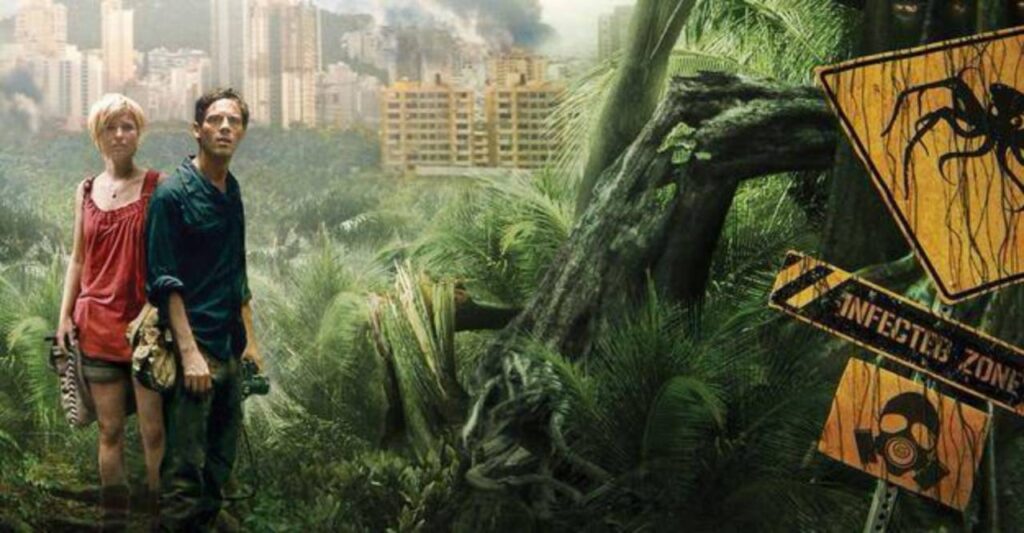
I’ve got a couple of other examples for you. In Gareth Edwards’ first movie, “Monsters,” about these giant monsters that lived in the jungles, we watch this couple who has to travel through one of those jungles. Everywhere you looked, in that movie, there was a sign that said, “Warning: Giant Monsters Ahead.” Then, halfway into the jungle, the couple hear this loud terrifying gurgling grumble off-screen and the husband says to the wife, I kid you not, “What was that?”
IT WAS THE MONSTERS!!!!!!!! ARE YOU DENSE OR SOMETHING????!!!!!
But, again, Gareth Edwards wanted that line in there. He wanted to, I don’t know, create suspense or something. He wanted that quiet scared moment where his characters tried to figure out what was making such a strange noise, despite the fact that the whole movie you’d written up to that point told us exactly what it was.
And then, we can’t leave the dialogue non-master, George Lucas, out of this, who, in Attack of the Clones, when Padme’s double lays dying on the ship platform after her ship blew up, Padme runs up to her and her double, in her last breaths, says, “I’m sorry your highness. I failed you.”
Uhhhhh, no you didn’t fail her. You actually did exactly what you were supposed to do!!! You made the bad guys think you were Padme, so that they tried to kill you instead of her. But Lucas was so zoned in on delivering that line, he couldn’t see the forest through the trees.
So just be aware of this, please. Place yourself in the reality of the moment and ask what would really be said in that moment. Don’t just write dialogue that you wanna write. Cause it may not stand up to the scrutiny of the situation.
What’d you watch this weekend?

